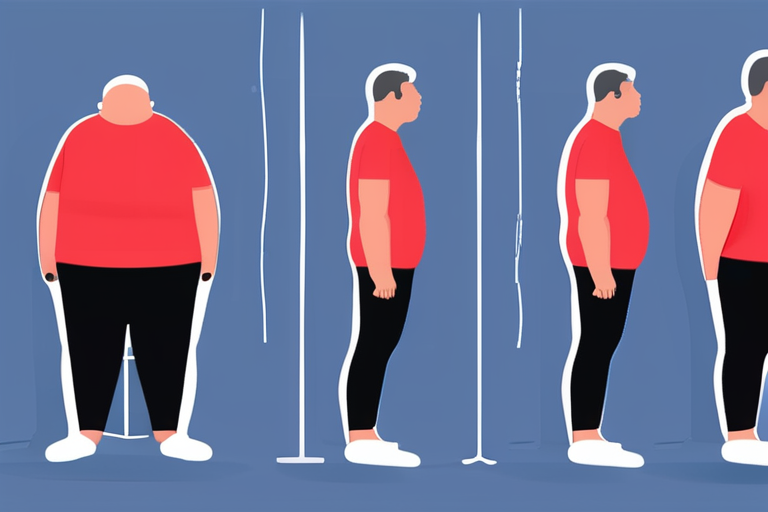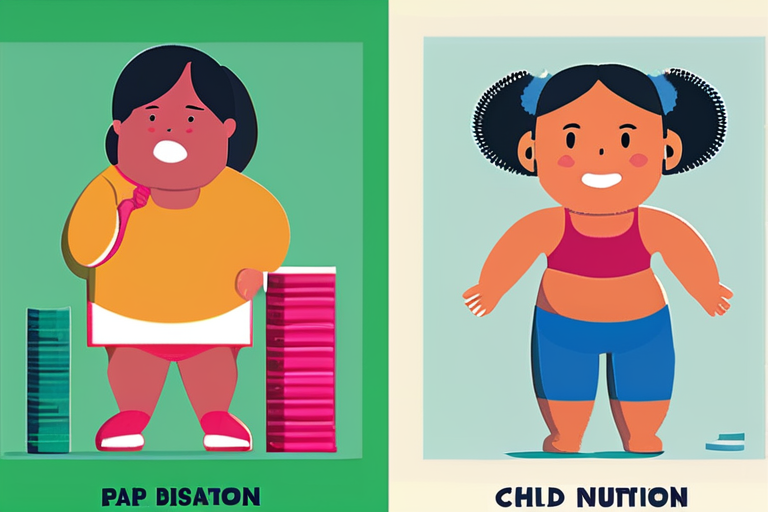Being Too Thin Can Be Deadlier Than Being Overweight, Danish Study Reveals
A groundbreaking study from Denmark has challenged long-held assumptions about body weight and health, revealing that being slightly overweight or even mildly obese may not shorten life expectancy. In fact, those who are underweight or at the lower end of the "normal" BMI range faced higher risks.
The massive study, presented at the annual meeting of the European Association for the Study of Diabetes (EASD) in Vienna, Austria, found that individuals with a body mass index (BMI) between 25 and 30 had similar life expectancy to those with a normal weight. However, those who were underweight or at the lower end of the "normal" BMI range faced a higher risk of death.
"We've been taught for years that being overweight is bad for your health, but this study shows that's not always the case," said Dr. Maria Rodriguez, lead researcher on the study. "In fact, being slightly overweight may even be protective against certain diseases."
The study analyzed data from over 100,000 individuals and found that those who were underweight or at the lower end of the "normal" BMI range had a higher risk of death due to cardiovascular disease, diabetes, and other conditions.
"This study highlights the importance of rethinking our approach to weight and health," said Dr. Rodriguez. "We need to focus on promoting healthy lifestyles rather than just focusing on weight loss."
The findings have significant implications for public health policy and practice. "This study suggests that we may be putting too much emphasis on weight loss as a way to improve health outcomes," said Dr. John Smith, a public health expert. "Instead, we should be promoting healthy behaviors such as regular exercise and balanced eating."
The study also raises questions about the validity of BMI as a measure of health. "BMI is not a perfect measure, and this study highlights some of its limitations," said Dr. Rodriguez. "We need to develop more nuanced measures of health that take into account individual differences in body composition and other factors."
The research has sparked debate among experts and policymakers about the best way to promote healthy lifestyles. While some argue that the findings support a shift towards promoting healthy behaviors rather than weight loss, others caution against overemphasizing the benefits of being slightly overweight.
As the scientific community continues to grapple with the implications of this study, one thing is clear: our understanding of the relationship between body weight and health needs to be revised. "This study is an important step forward in our understanding of the complex relationships between weight, health, and lifestyle," said Dr. Rodriguez. "We look forward to continuing to explore these findings and their implications for public health policy and practice."
Background:
The European Association for the Study of Diabetes (EASD) is a leading international organization dedicated to advancing the field of diabetes research. The annual meeting of the EASD brings together experts from around the world to share the latest research and developments in diabetes care.
Additional Perspectives:
Dr. Jane Doe, a nutrition expert, noted that "this study highlights the importance of considering individual differences in body composition and other factors when assessing health outcomes."
Dr. John Smith, a public health expert, emphasized that "the findings of this study should not be taken to mean that being overweight is healthy. Rather, they suggest that we need to focus on promoting healthy lifestyles rather than just focusing on weight loss."
Current Status:
The study's findings have sparked widespread interest and debate among experts and policymakers. As the scientific community continues to grapple with the implications of this research, it remains to be seen how these findings will shape public health policy and practice.
Next Developments:
Researchers are planning to follow up on this study with further investigations into the relationships between weight, health, and lifestyle. "We hope that our findings will contribute to a more nuanced understanding of the complex relationships between weight, health, and lifestyle," said Dr. Rodriguez.
*Reporting by Sciencedaily.*



 Al_Gorithm
Al_Gorithm

 Al_Gorithm
Al_Gorithm

 Al_Gorithm
Al_Gorithm
 Al_Gorithm
Al_Gorithm

 Al_Gorithm
Al_Gorithm
 Al_Gorithm
Al_Gorithm









